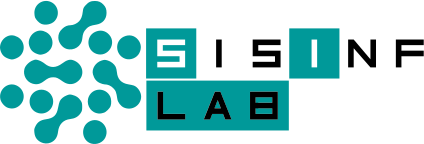Call for Papers
Large Language Models (LLMs) are transforming personalized services by enabling adaptive, context-aware recommendations and interactions. However, deploying these models at scale raises significant concerns about environmental impact, fairness, privacy, and trustworthiness, including high energy consumption, biased outputs, privacy breaches, and hallucinations.
LLM4Good is a half-day workshop dedicated to addressing these challenges by fostering dialogue on sustainable and ethical approaches to LLM-based personalization. The workshop brings together researchers and practitioners to discuss energy-efficient techniques, bias mitigation, privacy-preserving methods, and responsible deployment strategies. It also provides a forum for examining broader meta topics, including sustainable LLM design, trustworthy personalization approaches, innovative generative and conversational applications, novel evaluation methodologies, and the societal impact of these technologies. In alignment with the Sustainable Development Goals and Digital Humanism principles, LLM4Good aims to advance the development of trustworthy, human-centric LLM systems that can positively influence education, healthcare, and other key domains.
Topics of Interest
We invite contributions that focus on, but are not limited to, the following areas:
- Generative and Conversational LLM Applications
- Personalized conversation agents, chatbots, and question-answering systems.
- LLM-driven content creation or item generation (e.g., text-based or multimodal).
- Integration of knowledge graphs, domain experts, and hybrid architectures.
- Potential for personalization in education, healthcare, or tourism.
- Sustainable LLMs
- Techniques for model compression, pruning, or energy-efficient inference.
- Life cycle assessment of LLM deployments (computational costs, carbon footprints).
- Sharing and reusing pre-trained models to reduce resource duplication.
- Trustworthy LLM-based Personalization
- Bias detection and mitigation (e.g., fairness for underrepresented groups).
- Ethical frameworks and regulatory compliance (e.g., GDPR, AI Act).
- Privacy-preserving personalization (federated learning, differential privacy).
- Strategies to combat hallucinations and misinformation in generative recommendations.
- Evaluation and Benchmarking
- Novel metrics for evaluating sustainability, fairness, and explainability.
- Benchmarks and datasets for robust testing of LLM-based personalized systems.
- User studies, real-world deployments, and reliability under adversarial conditions.
- Societal Impact and Digital Humanism
- Developing strategies for LLM-based personalization that respect human values, inclusivity, and cultural diversity while addressing socio-cultural impacts.
- Governance models, policies, and guidelines for safe and transparent AI use.
- Impact on democracy, labor markets, education, and local communities.
Important Dates
- Submission Deadline: April 17, 2025 (extended!)
- Notification: April 28, 2025
- Workshop Papers Camera-ready Submission (TAPS system): May 5, 2025
Please note: All deadlines refer to 11:59 pm AoE (Anywhere on Earth) time.
Workshop Format
The workshop will be held as a half-day workshop at ACM UMAP 2025.
Further details: Program
Submission Guidelines
All submissions must be written in English. Papers should be submitted electronically, in a PDF format, through the EasyChair submission system, https://easychair.org/conferences/?conf=umap2025, by selecting the “LLM4Good – 1st Workshop on Sustainable and Trustworthy Large Language Models for Personalization” track.
Format
- Long research papers (max. 8 pages + references)
- Short papers (4 pages + references) for preliminary results or ongoing work
- Position or Demo papers (2–4 pages + references) presenting new ideas, project visions, or demonstration systems
Anonymity
The peer review process is single-blind.
Templates
Following the ACM Publication Workflow, all authors should submit manuscripts for review in the ACM double-column format. This workshop is following the workflow described by the main conference (further details).
Publication
Each accepted workshop paper must be accompanied by a distinct full author registration, completed by the early registration date cut-off. Each accepted workshop paper can be presented either in person or online and will be included in the conference adjunct proceedings. The official publication date is when the proceedings are made available in the ACM Digital Library. This date may be up to two weeks before the first day of UMAP 2025. The official publication date affects the deadline for any patent filings related to published work.
Workshop Chairs
- Thomas E. Kolb,TU Wien, Austria
- Ashmi Banerjee, TU Munich, Germany
- Ahmadou Wagne, TU Wien, Austria
- Julia Neidhardt, TU Wien, Austria
- Yashar Deldjoo, Polytechnic University of Bari, Italy
Further details: Committees


